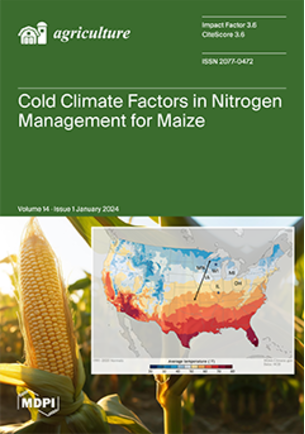公众对农田生态补偿的支付意愿及对农民的分配:中国东北地区的实证研究
Q2 Agricultural and Biological Sciences
引用次数: 0
摘要
农田生态补偿作为一种典型的生态系统服务付费计划,旨在解决环境目标与发展目标之间的权衡问题。作为生态补偿不可或缺的支持者,公众对农田生态补偿的支付意愿(WTP)和对农户的分配直接影响到农田的生态安全和可持续发展。因此,本研究将公众对耕地生态补偿的支付意愿与农民获得的财政补贴联系起来,提出了一种将利益相关者联系起来的理论框架和研究方法,并在中国东北黑土区应用改进选择实验进行了实证研究。结果表明,公众对尽快改善耕地面积、土壤厚度和有机质含量的耕地生态补偿项目具有正的 WTP。公众对生态补偿的 WTP 分配差异较大,分配给农户的 WTP 占比平均为 46.96%,显示出补偿标准的基准性。研究结果揭示了公众的社会经济特征与 WTP 分配和农田生态补偿偏好之间的影响关系,如年龄与 WTP 分配呈正相关、女性更偏好生态补偿等。这些发现为探索农田生态补偿的可持续路径提供了新的视角和方法。本文章由计算机程序翻译,如有差异,请以英文原文为准。
Public Willingness to Pay for Farmland Eco-Compensation and Allocation to Farmers: An Empirical Study from Northeast China
Farmland eco-compensation, as a typical payment for ecosystem services scheme, aims to address trade-offs between environmental and developmental objectives. As indispensable eco-compensation supporters, the public’s willingness to pay (WTP) for farmland eco-compensation and the allocation to farmers directly affect ecological safety and sustainable development for farmland. Therefore, this study links the public’s WTP for the farmland eco-compensation to the financial subsidies received by farmers and presents a theoretical framework and research approach that connects stakeholders, applying improved choice experiments for empirical study in the black soil region of northeastern China. The results showed that the public has a positive WTP for the farmland eco-compensation program that improves the area, soil thickness, and organic content expeditiously. The public’s WTP allocation for eco-compensation varies considerably, with the share allocated to farmers in their WTP averaging 46.96%, showing a benchmark for compensation standards. The results revealed the influential relationship between the socioeconomic characteristics of the public with WTP allocation and the preferences for farmland eco-compensation, such as the positive correlation between age with WTP allocation and females’ greater preference for eco-compensation. These findings can provide new perspectives and approaches to exploring sustainable pathways for farmland eco-compensation.
求助全文
通过发布文献求助,成功后即可免费获取论文全文。
去求助
来源期刊

Agriculture
Agricultural and Biological Sciences-Horticulture
CiteScore
1.90
自引率
0.00%
发文量
4
审稿时长
11 weeks
期刊介绍:
The Agriculture (Poľnohospodárstvo) is a peer-reviewed international journal that publishes mainly original research papers. The journal examines various aspects of research and is devoted to the publication of papers dealing with the following subjects: plant nutrition, protection, breeding, genetics and biotechnology, quality of plant products, grassland, mountain agriculture and environment, soil science and conservation, mechanization and economics of plant production and other spheres of plant science. Journal is published 4 times per year.
 求助内容:
求助内容: 应助结果提醒方式:
应助结果提醒方式:


